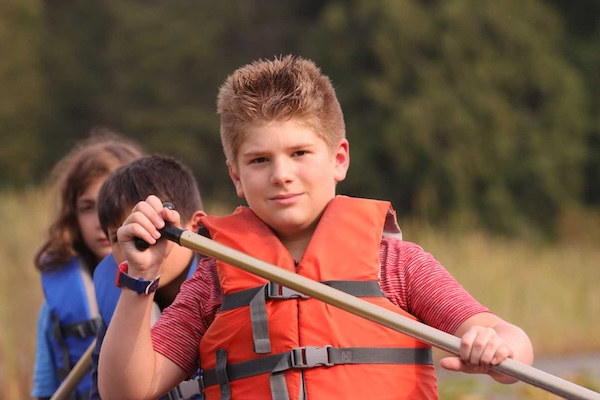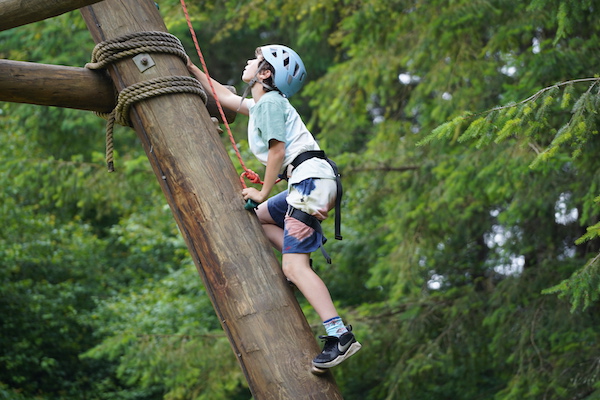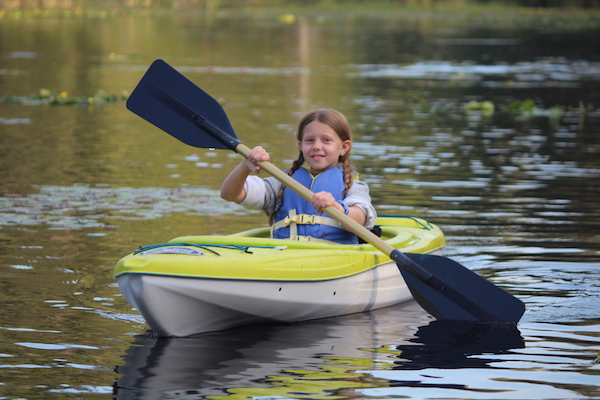Time at summer camp is an incredible gift to give kids and teens. (photo from Camp Kalsman)
In a world where children and teens are met with a barrage of external pressures telling them who they should idolize, what they should wear and how they should spend their time, summer camps provide a respite. As much as I try to help my three kids build resilience and a strong moral compass, I know that, as soon as they walk out the door, it can be an uphill battle every day of the school year.
As parents, we need more places outside of our home where our kids and teens can feel at home while they can practise the critical thinking, self-awareness and problem-solving skills we all know are so essential. This is why I love summer camp for my kids – and I’m not just saying that because I’m the director of a summer camp! Ask anyone who grew up at an overnight summer camp and most will tell you that camp was where they felt most comfortable in their own skin, where they were celebrated for exactly who they were, and where they learned many of the lessons that have stuck with them throughout their adult life.
Here are the top three life lessons that kids and teens can take away from summer camp.
1. Find your people
Each summer, kids arrive at camp with a ton of baggage and it’s not just in the form of trunks and duffels and sleeping bags. The beauty of summer camp is that campers can shed that layer (or layers) of themselves that build up over the course of the year and spend time exploring who they are, what brings them joy, who brings out the best in them … without the pressures of school peers who “know them.”
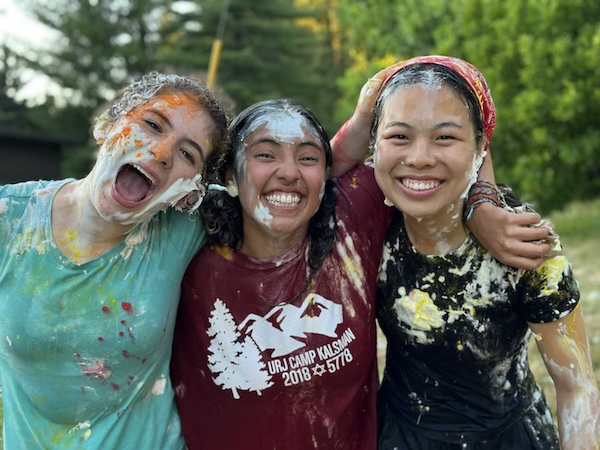
Spending time in an immersive environment like overnight camp enables kids and teens to be vulnerable with their peers in a safe and supported way; eventually worrying less about how they “should be” and feeling more comfortable and confident in who they are. It’s in this state of self-confidence – nurtured by kind, compassionate counselors – that campers are able to find “their people” who “just get them,” reinforcing what we at URJ Camp Kalsman (and every other overnight summer camp!) have known for years: camp friends are the best friends.
2. Be still, present, open
Camp creates an environment that is ripe for self-awareness, self-discovery and meaningful connections away from the pressures of school, sports and, yes, well-meaning adults at home. Without a message to respond to or an assignment to complete, kids and teens are presented with … time. Not the time filled with camp activities (although there is plenty of that, too) but those significant, intentional moments where nothing is planned … the 15 minutes of serenity in the canoe in the middle of the lake or the walk, together with a friend from the cabin, to the dining hall under a canopy of trees, or the silence after hours of belly-laughter, staring up at the stars surrounded by cabinmates. The stillness of those moments, which are so hard to come by when we are shuffling kids to and from school and activities, are priceless and are built into the fabric of summer camp.
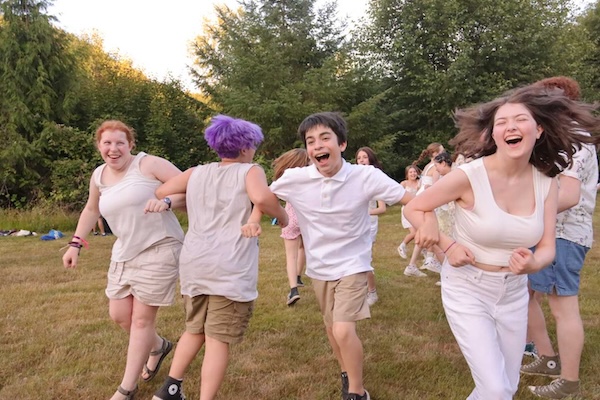
3. Don’t run from mistakes
As parents, we want our kids to be gritty – to be able to take responsibility for a mistake and bounce back, whether from making a poor choice, disappointing a friend, failing a test, or not being cast in the school play. At camp, mistakes and failure happen every day, and kids must live with it – there is no escape, they can’t hide in their rooms alone or take the long way to class to avoid a friend. Camp is a 24/7 living and learning experience, where campers are supported and guided through conflict and failure, whether it is not making it to the top of the tower or tension with a bunkmate. Mistakes happen, we fall short of expectations, and camp provides the structure to help kids recognize where they missed the mark and the opportunity to try again tomorrow – or in 15 minutes!
Time at summer camp is an incredible gift to give kids and teens – one that they will benefit from long into adulthood.
Rabbi Ilana Mills is camp director, URJ Camp Kalsman. If you are interested in learning more about URJ Camp Kalsman, visit campkalsman.org or contact Mills at [email protected].

